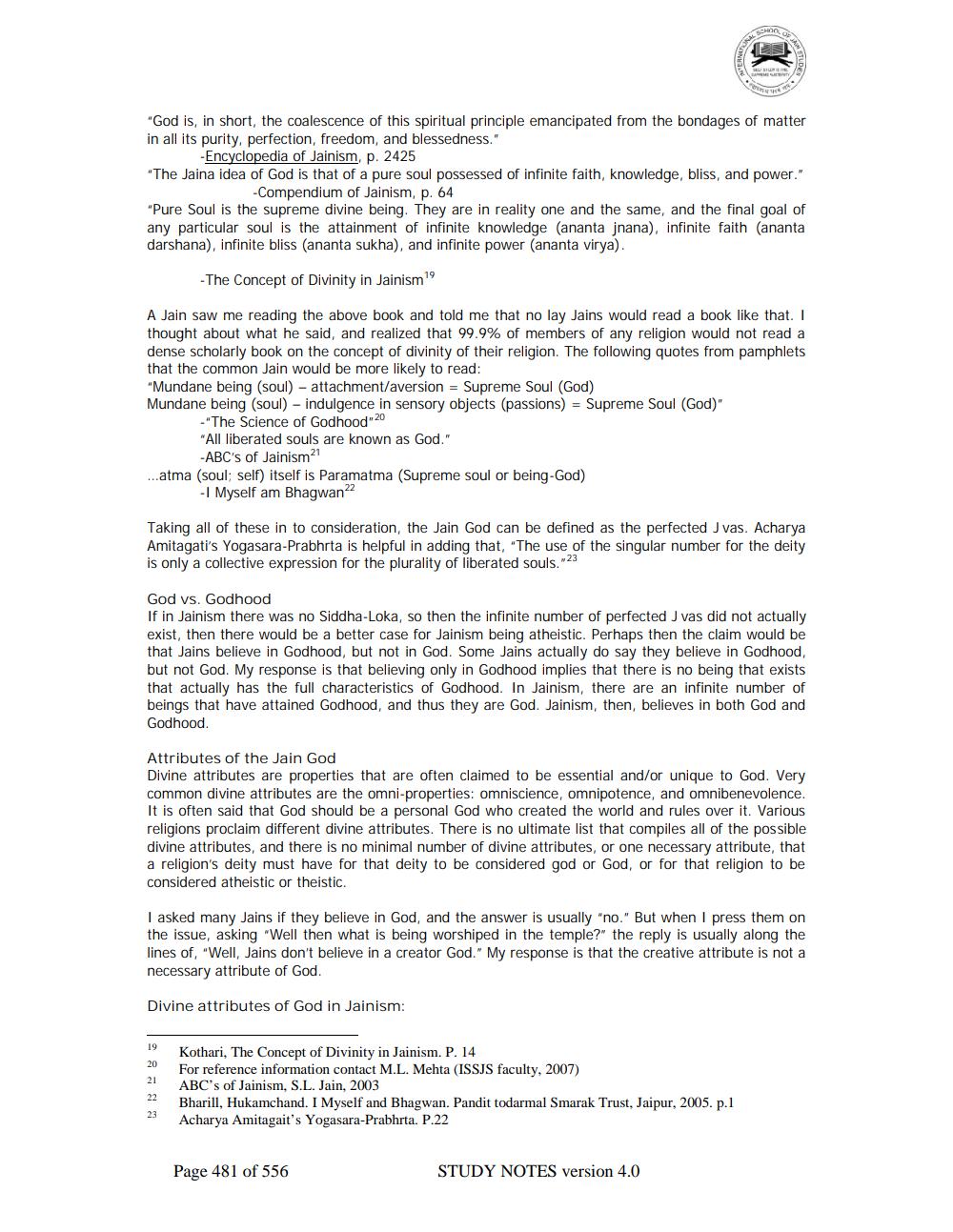________________
"God is, in short, the coalescence of this spiritual principle emancipated from the bondages of matter in all its purity, perfection, freedom, and blessedness."
-Encyclopedia of Jainism, p. 2425 "The Jaina idea of God is that of a pure soul possessed of infinite faith, knowledge, bliss, and power."
-Compendium of Jainism, p. 64 "Pure Soul is the supreme divine being. They are in reality one and the same, and the final goal of any particular soul is the attainment of infinite knowledge (ananta jnana), infinite faith (ananta darshana), infinite bliss (ananta sukha), and infinite power (ananta virya).
- The Concept of Divinity in Jainismo
A Jain saw me reading the above book and told me that no lay Jains would read a book like that. I thought about what he said, and realized that 99.9% of members of any religion would not read a dense scholarly book on the concept of divinity of their religion. The following quotes from pamphlets that the common Jain would be more likely to read: "Mundane being (soul) - attachment/aversion = Supreme Soul (God) Mundane being (soul) - indulgence in sensory objects (passions) = Supreme Soul (God)"
"The Science of Godhood" "All liberated souls are known as God."
-ABC's of Jainism21 ...atma (soul; self) itself is Paramatma (Supreme soul or being-God)
-1 Myself am Bhagwan22
Taking all of these in to consideration, the Jain God can be defined as the perfected J vas. Acharya Amitagati's Yogasara-Prabhrta is helpful in adding that, "The use of the singular number for the deity is only a collective expression for the plurality of liberated souls. 23
God vs. Godhood If in Jainism there was no Siddha-Loka, so then the infinite number of perfected J vas did not actually exist, then there would be a better case for Jainism being atheistic. Perhaps then the claim would be that Jains believe in Godhood, but not in God. Some Jains actually do say they believe in Godhood, but not God. My response is that believing only in Godhood implies that there is no being that exists that actually has the full characteristics of Godhood. In Jainism, there are an infinite number of beings that have attained Godhood, and thus they are God. Jainism, then, believes in both God and Godhood.
Attributes of the Jain God Divine attributes are properties that are often claimed to be essential and/or unique to God. Very common divine attributes are the omni-properties: omniscience, omnipotence, and omnibenevolence. It is often said that God should be a personal God who created the world and rules over it. Various religions proclaim different divine attributes. There is no ultimate list that compiles all of the possible divine attributes, and there is no minimal number of divine attributes, or one necessary attribute, that a religion's deity must have for that deity to be considered god or God, or for that religion to be considered atheistic or theistic.
I asked many Jains if they believe in God, and the answer is usually "no." But when I press them on the issue, asking "Well then what is being worshiped in the temple?" the reply is usually along the lines of, "Well, Jains don't believe in a creator God." My response is that the creative attribute is not a necessary attribute of God.
Divine attributes of God in Jainism:
Kothari, The Concept of Divinity in Jainism. P. 14 For reference information contact M.L. Mehta (ISSJS faculty, 2007) ABC's of Jainism, S.L. Jain, 2003 Bharill, Hukamchand. I Myself and Bhagwan. Pandit todarmal Smarak Trust, Jaipur, 2005. p.1 Acharya Amitagait's Yogasara-Prabhrta. P.22
Page 481 of 556
STUDY NOTES version 4.0




